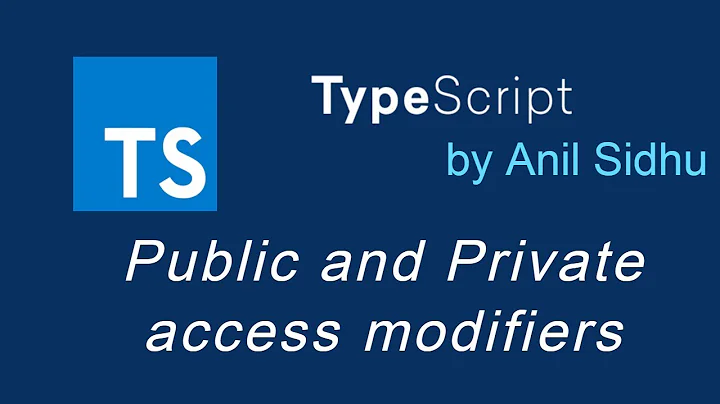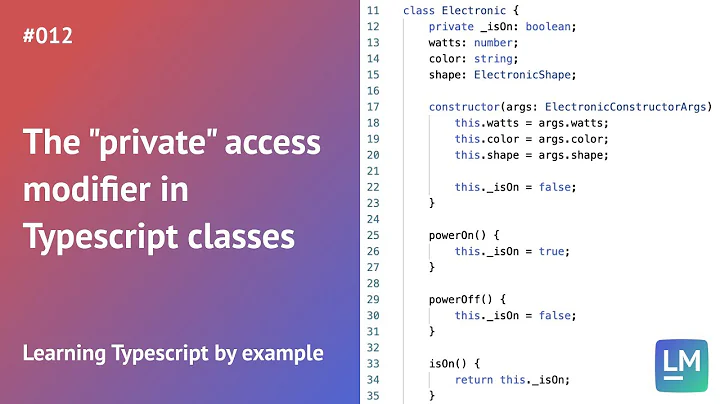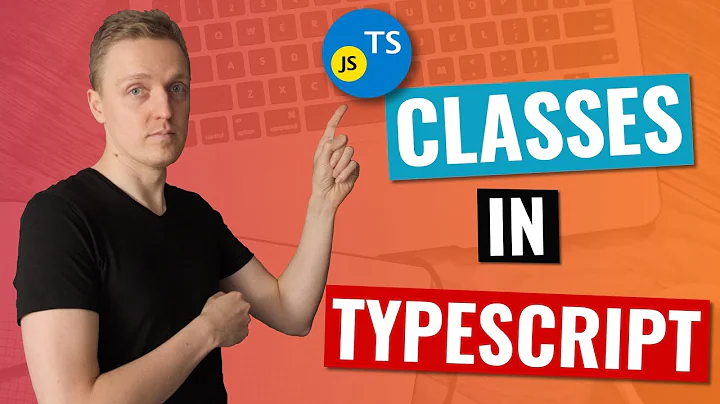Private "functions" in TypeScript
Solution 1
TypeScript public/private keywords only apply to the way TypeScript checks your code - they don't have any effect on the JavaScript output.
According to the language specification (pp. 9-10):
Private visibility is a design-time construct; it is enforced during static type checking but does not imply any runtime enforcement. ... TypeScript enforces encapsulation of implementation in classes at design time (by restricting use of private members), but cannot enforce encapsulation at runtime because all object properties are accessible at runtime. Future versions of JavaScript may provide private names which would enable runtime enforcement of private members
This has already been asked and answered here: https://stackoverflow.com/a/12713869/1014822
Update: This old answer still gets an amount of traffic, so worth noting that, in addition to the language spec link above, public, private, and (now) protected members are covered in detail in the TypeScript handbook chapter on classes.
2018 Update Implementation of ES Private Fields is now a Future item on the TypeScript RoadMap although discussion suggests this will be a parallel hard private option, not a replacement for the current soft private implementation.
2020 Update
Runtime private fields using the # operator have been implemented as of TS 3.8. There is a good discussion of how they work and how they differ from compile-time fields with the private keyword on StackOverflow here.
Private methods have reached stage 3 of the TC39 working group. The feature is currently in active discussion for TypeScript, for example here.
Solution 2
In Javascript (as opposed to TypeScript), you can't have a private "member" function.
If you define a private function in the closure, you won't be able to call it as an instance method on an instance of your class.
If that's what you want, just move the TypeScript function definition outside the class body.
Solution 3
You can use private class variables and functions in TypeScript/Webpack and even in the latest Google Chrome versions natively. Just add a # before the name. See here.
MyClass {
#privateMember: Number = 4
#privateMethod() {
this.#privateMember = 3
}
}
Related videos on Youtube
Richard
Lover of anything programming related, with a special interest in algorithms, micro-optimisation, performance, and systems architecture. Primarily focusing on Microsoft web-based applications using: c#, t-sql javascript, jquery, typescript html5, css3 Previous projects also include native ios work using xcode.
Updated on July 05, 2022Comments
-
Richard almost 2 years
Is it possible to create a private "function" (method) within a TypeScript class? Let's assume we have the following
Person.tsTypeScript file:class Person { constructor(public firstName: string, public lastName: string) { } public shout(phrase: string) { alert(phrase); } private whisper(phrase: string) { console.log(phrase); } }Which when compiled is being transformed to the following:
var Person = (function () { function Person(firstName, lastName) { this.firstName = firstName; this.lastName = lastName; } Person.prototype.shout = function (phrase) { alert(phrase); }; Person.prototype.whisper = function (phrase) { console.log(phrase); }; return Person; })();Observations
I was expecting the
whisperfunction to be declared within the closure, but not on the prototype? Essentially this makes thewhisperfunction public when compiled?-
 Jude Fisherpossible duplicate of TypeScript private members
Jude Fisherpossible duplicate of TypeScript private members
-
-
Richard almost 11 yearsHmm, I guess there where the
var self = this;applies? Is it possible to declare a function within a closure that doesn't explicitly access any instance information? -
SLaks almost 11 years@Richard: No;
var self = thishas nothing to do with this. The point is that there is no way to makeinstance.method()only work in your closure. -
Richard almost 11 yearsSure; but it is possible to simply call
method()from within an instance (public) method, is it not? -
SLaks almost 11 yearsYes, but it will have nothing to do with the class. (although you can accept
thisas a parameter) -
 nomæd over 8 yearsIt can be done, but every call to a private method would have to be done using apply() or call() with the instance "this".
nomæd over 8 yearsIt can be done, but every call to a private method would have to be done using apply() or call() with the instance "this". -
StingyJack about 7 yearsOdd that the chapter on functions is silent on this.








